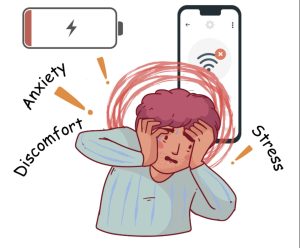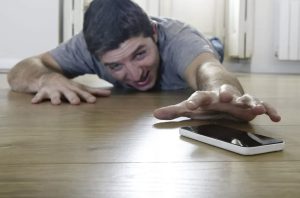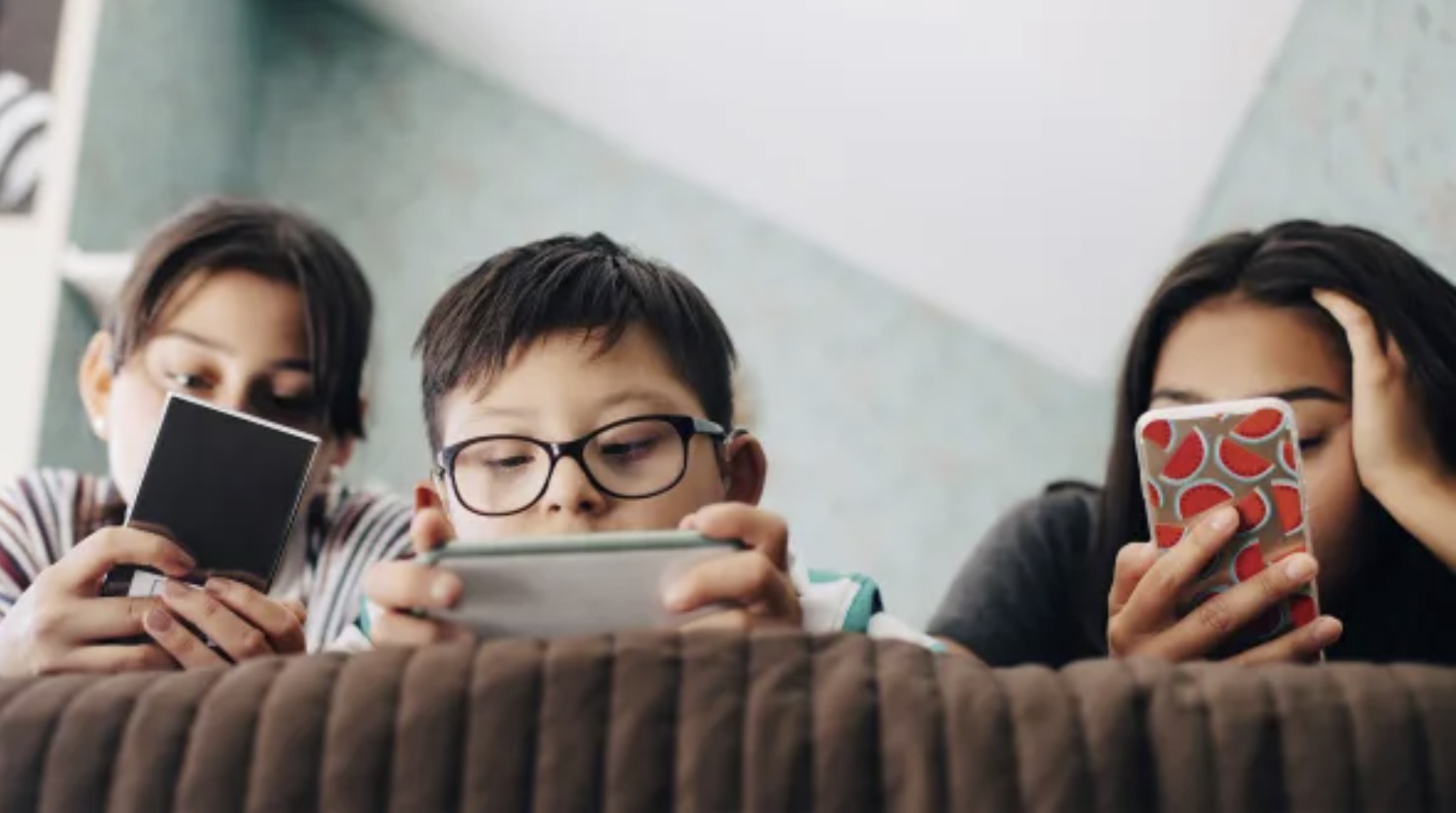There is a sudden movement in the Western World to take smartphones away from kids.

It started in the summer of 2022 when social psychologist Jonathan Haidt at New York University, the father of two adolescents, was writing a book about what he called “the pervasive negative effects of the internet and social media on our culture…and relationships.”
Haidt planned to open the book with a chapter on kids, who he called “the canary in the coal mine.” When he dug into the research, he found a dramatic uptick in anxiety and depression among children around the year 2012. What could possibly have been responsible for this radical rise?

Haidt pinpointed two villains.
- He said that parents starting in the 1980s no longer allowed their kids to go off with their friends and play without adult supervision. Haidt cited research indicating that this sort of play is necessary to wire up the brains of all mammals, including us humans. And Haidt called this “the decline of play-based childhoods.” The decline of play-based childhoods was villain number one.
- Then there was a second villain, the one Haidt had zeroed in on as the bad-guy of his book: the smartphone. The smartphone was introduced to the public in 2007 by Steve Jobs and imitated by South Korea’s Samsung in 2009. It became a must-have part of our lives. Then it trickled down to children. Today, 42% of ten year olds have smartphones.
- But, according to Haight, there’s an additional devil hidden in the smartphone—social media, which Haidt says companies like Meta design to addict you.
Smartphone use among kids was supposed to be just one chapter in Haidt’s book. But it rapidly expanded into a book of its own—Haidt’s new book The Anxious Generation. A book about what Haidt calls “the rise of the phone-based childhood.”
On his website, Haidt displays a chart from the US National Survey on Drug Use and Health. That chart reveals something alarming. Anxiety has rocketed among 18-25 year olds from 7% in 2011 to 18% today. Anxiety has increased by 139%.

However, 18% is a low anxiety figure for a period of life in which young adults are trying to leave their parents, find jobs, find mates, and going through jarring changes. Pinning the anxieties of 18-25 year olds, on social media and smart phones may be a stretch.
But Jonathan Haidt was not alone. He was riding a wave in the spirit of our age. Remember, every generation of parents is horrified by the new technologies of its kids. Plato was horrified by a newfangled thing called writing. The town fathers of London were horrified by Shakespeare. And archbishops in America were horrified by the birth of swing music.

So, in England in February of this year, two mothers were talking at the “school gate” after they’d dropped off their eleven-year-old kids. Both of them were alarmed by the number of 11-year-olds owning smartphones. And by the sort of research on childhood anxiety and depression that had disturbed Jonathan Haidt.
The mothers were specifically upset by what they called “scientific evidence” revealing that “the younger a child is when they get a mobile phone, the higher their incidence of mental illness.”

The two moms realized that parents are reluctant to take away their kids’ smart phones because they don’t want to stigmatize their children and get them picked on at school. So they decided to try to convince a whole bunch of parents to take away the smart phones of a whole bunch of local kids simultaneously.
They set up a WhatsApp group, Smart Phone Free Childhood, then promoted it with an Instagram post. The response was not what they expected. The Instagram post went viral, and their chat group exceeded WhatsApp’s 1,000-participant limit in 24 hours. Now it’s up to more than 60,000.

But the wave was not limited to England. Movements to take smartphones away from kids sprang up in the United States, Spain, Australia, Brazil, Canada, South Africa, and even the United Arab Emirates.
And when Jonathan Haidt’s book was finally published in March, the month after a host of anti-kids-smartphone movements had sprung up, his Anxious Generation zipped instantly to number one on the best-seller lists.

Smartphone-phobia has gripped the western world.
References:
Sohn, S., Rees, P., Wildridge, B., Kalk, N., & Carter, B. (2019). Prevalence of problematic smartphone usage and associated mental health outcomes amongst children and young people: a systematic review, meta-analysis and GRADE of the evidence. BMC Psychiatry, 19. https://doi.org/10.1186/s12888-019-2350-x.
Thomée, S. (2018). Mobile Phone Use and Mental Health. A Review of the Research That Takes a Psychological Perspective on Exposure. International Journal of Environmental Research and Public Health, 15. https://doi.org/10.3390/ijerph15122692.
Zheng, X. (2022). Research on the Impact of Smart Phone Use on Children’s Socialization. The Frontiers of Society, Science and Technology.https://doi.org/10.25236/fsst.2022.040610
https://smartphonefreechildhood.co.uk/about
https://www.bbc.com/news/uk-england-suffolk-68305092
https://medicalxpress.com/news/2024-03-smartphone-free-childhood-uk.pdf
https://graziadaily.co.uk/life/parenting/smartphone-free-childhood-campagin/
https://www.cnbc.com/2024/07/17/a-smartphone-free-childhood-a-global-movement-is-growing.html
https://jonathanhaidt.com/anxious-generation/
https://fourminutebooks.com/the-anxious-generation-summary/
https://www.penguinrandomhouse.com/books/729231/the-anxious-generation-by-jonathan-haidt/
https://philstarlife.com/geeky/685359-calls-for-smartphone-free-childhood-grow-in-uk
https://theweek.com/education/smartphones-and-children-are-we-too-hung-up-on-the-dangers
______
Howard Bloom of the Howard Bloom Institute has been called the Einstein, Newton, Darwin, and Freud of the 21st century by Britain’s Channel 4 TV. One of his eight books–Global Brain—was the subject of a symposium thrown by the Office of the Secretary of Defense including representatives from the State Department, the Energy Department, DARPA, IBM, and MIT. His work has been published in The Washington Post, The Wall Street Journal, Wired, Psychology Today, and the Scientific American. He does news commentary at 1:06 am Eastern Time every Wednesday night on 545 radio stations on Coast to Coast AM. For more, see http://howardbloom.institute.

